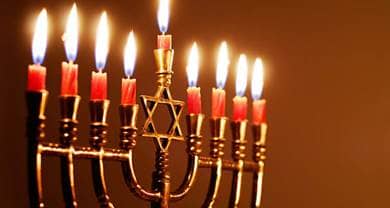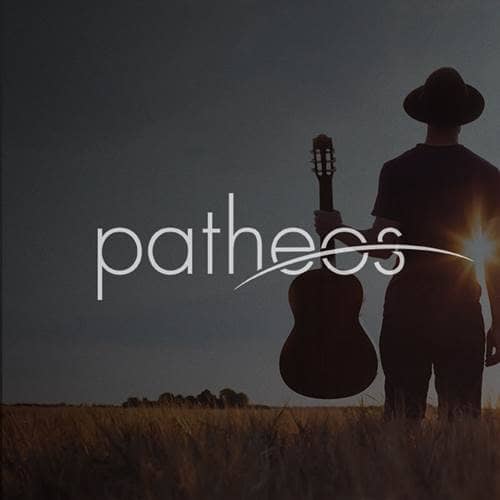- Trending:
- Pope Leo Xiv
- |
- Israel
- |
- Trump
- |
- Social Justice
- |
- Peace
- |
- Love

RELIGION LIBRARY
Judaism
Suffering and the Problem of Evil
Throughout history, Jews have addressed the relation between God, evil, and human suffering by demonstrating a spectrum between those who defend, justify, or accept God's relationship to evil and those who refuse to ascribe any positive meaning for the presence of evil in the world, even reaching the extreme of protesting against God on behalf of their respective communities. Yet in between those extremes exist the bulk of Jewish responses to evil. Here visions of God's omnipotence, omnipresence, and goodness are radically compromised and God's relationship to evil is blurred in the face of unjustified suffering, illustrating the continually swinging pendulum between theodicy and antitheodicy throughout history.
In the biblical and First Temple periods, evil was not even discussed, based on the assumption that God is just. There was a sense of collective responsibility for evil as sin, expressed most clearly in Deuteronomy. Influenced indirectly by Hellenistic thought and literature during the Second Temple period, the Book of Job was the first individual, critical response to the doctrine of retribution in the Torah. The author clearly expresses a tension between theodicy, an undying faith in God's justice despite terrible personal tragedy, and an active protest in which God is put on trial. Job becomes the plaintiff and prosecutor with his friends serving as witnesses, co-defendants, and judges. God is forced to be the defendant in the case, yet remains the ultimate judge against Job and his friends. The author indicts God for not holding up the covenant, by censuring and silencing God throughout the text to uphold Job's innocence. Ultimately, the text does appear to turn the authority back to God at the end with a divine speech, undermining Job's defense and even swinging the pendulum back to intensified faith in God, creation, and providence. Yet God's response does not necessarily satisfy the reader, because it never addresses Job's complaint, and instead shifts the blame back on Job for his ignorance of divine providence.
In the Rabbinic period between 70-500 C.E., the rabbis constructed a theodicy by arguing that God created every human being with a yetser tov or "good urge," and the yetser ha-ra, "bad urge." They asserted that both urges were necessary because the bad urge provided individuals with the libido or energy that they needed to use for productive purposes like building houses, marriage, having children, and conducting business. However, if not channeled in the appropriate way, the yetser ha-ra could become the source of evil. The rabbis also tried to explain why the righteous suffer by arguing that if a righteous person suffers in this world, he or she will be rewarded in olam ha-bah, the "World to Come," when all the righteous souls will be reunited with their bodies after the Messiah comes.
However, the rabbis also demonstrated a tension between theodicy and antitheodicy by constructing a counter-lawsuit similar to that of Job in Lamentations Rabbah, a commentary to the biblical Book of Lamentations, that laments the destruction of the First and Second Temples. In their commentary on Lamentations, the rabbis interspersed examples of Israel's guilt for the destruction of both Temples, based on a rejection of God, failure to study Torah, and ethical and cultic violations. There is a heavenly trial scene in which Israel's advocates—Abraham, Jacob, Moses, and Rachel—actually turn the trial on its head by moving from divine judgment to solidarity with Israel in its suffering over against a defensive God. Abraham reaffirms Israel's zealous observance of the Torah, and the trial reaches a climax with Moses' appeal to the absence of divine justice, using the Leviticus law on slaughtering of animals against its supposed author. Finally, Rachel cites an absence of divine mercy, with the conclusion of the story faulting God and forcing the withdrawal of God's complaint against Israel.
 During the medieval period, three different types of theodicies emerged to cope with persecution and suffering. In response to the Crusades in 1096, the Ashkenazic Jews of the Rhineland advocated a martyrological theodicy by advocating kiddush ha-Shem, dying for "the sanctification of God's name," rather than converting to Christianity. The 11th-century rabbinic commentator Rashi provided the soteriological theodicy by arguing that it wasn't Christ who suffered for the sins of the world, but rather the Jewish people as a whole. Finally, the 12th-century philosopher Yehuda Halevi constructed a missionary theodicy by arguing that Jewish suffering in exile was justified in the sense that through their dispersion, they could fulfill their mission of spreading the knowledge of God to the non-Jewish world.
During the medieval period, three different types of theodicies emerged to cope with persecution and suffering. In response to the Crusades in 1096, the Ashkenazic Jews of the Rhineland advocated a martyrological theodicy by advocating kiddush ha-Shem, dying for "the sanctification of God's name," rather than converting to Christianity. The 11th-century rabbinic commentator Rashi provided the soteriological theodicy by arguing that it wasn't Christ who suffered for the sins of the world, but rather the Jewish people as a whole. Finally, the 12th-century philosopher Yehuda Halevi constructed a missionary theodicy by arguing that Jewish suffering in exile was justified in the sense that through their dispersion, they could fulfill their mission of spreading the knowledge of God to the non-Jewish world.
| Martyrological theodicy | Soteriological theodicy | Missionary theodicy |
| in response to Crusades | argued by Rashi | constructed by Halevi |
| dying for God's name | Jews (not Christ) suffered for sins of the world | Jews suffering in exile spread knowledge of God |
The tension between theodicy and antitheodicy reached its extremes following the Holocaust when Jewish theologians were faced with the tremendously difficult task of affirming their covenant with God while recognizing that the same God of Sinai is also the God of Auschwitz. Their responses span the spectrum of theodicy to antitheodicy.
 In Faith After the Holocaust (1974), Eliezer Berkovits rejected the deuteronomic notion that the Holocaust could be interpreted as a punishment for sin, but constructed a post-Holocaust theology with a strong theodic thrust by transferring much of the blame for the Holocaust from God to humanity, and more specifically Christian culture. In To Mend the World (1982), Emil Fackenheim viewed the Holocaust as historically unique and rejected traditional theodicies.
In Faith After the Holocaust (1974), Eliezer Berkovits rejected the deuteronomic notion that the Holocaust could be interpreted as a punishment for sin, but constructed a post-Holocaust theology with a strong theodic thrust by transferring much of the blame for the Holocaust from God to humanity, and more specifically Christian culture. In To Mend the World (1982), Emil Fackenheim viewed the Holocaust as historically unique and rejected traditional theodicies.  Instead, he created his own fragmented theology by arguing that the Holocaust represents a cosmic rupture that can never be fully repaired theologically. In After Auschwitz (First and Second Editions, 1966, 1992), Richard Rubenstein constructed a complete anti-theodicy by rejecting what he considered to be the traditional Jewish portrayal of an omnipotent and transcendent biblical God for whom the Holocaust would be a punishment for Jewish sins, concluding that we now live in the age of the death of the historical God.
Instead, he created his own fragmented theology by arguing that the Holocaust represents a cosmic rupture that can never be fully repaired theologically. In After Auschwitz (First and Second Editions, 1966, 1992), Richard Rubenstein constructed a complete anti-theodicy by rejecting what he considered to be the traditional Jewish portrayal of an omnipotent and transcendent biblical God for whom the Holocaust would be a punishment for Jewish sins, concluding that we now live in the age of the death of the historical God.
Study Questions:
1. Why was evil seen within the context of divine justice?
2. Why are good and evil urges necessary? What is the perceived reward for choosing to follow the good ones?
3. How is the covenant related to Judaism's understanding of evil?
4. How is evil understood in a post-Holocaust society?










